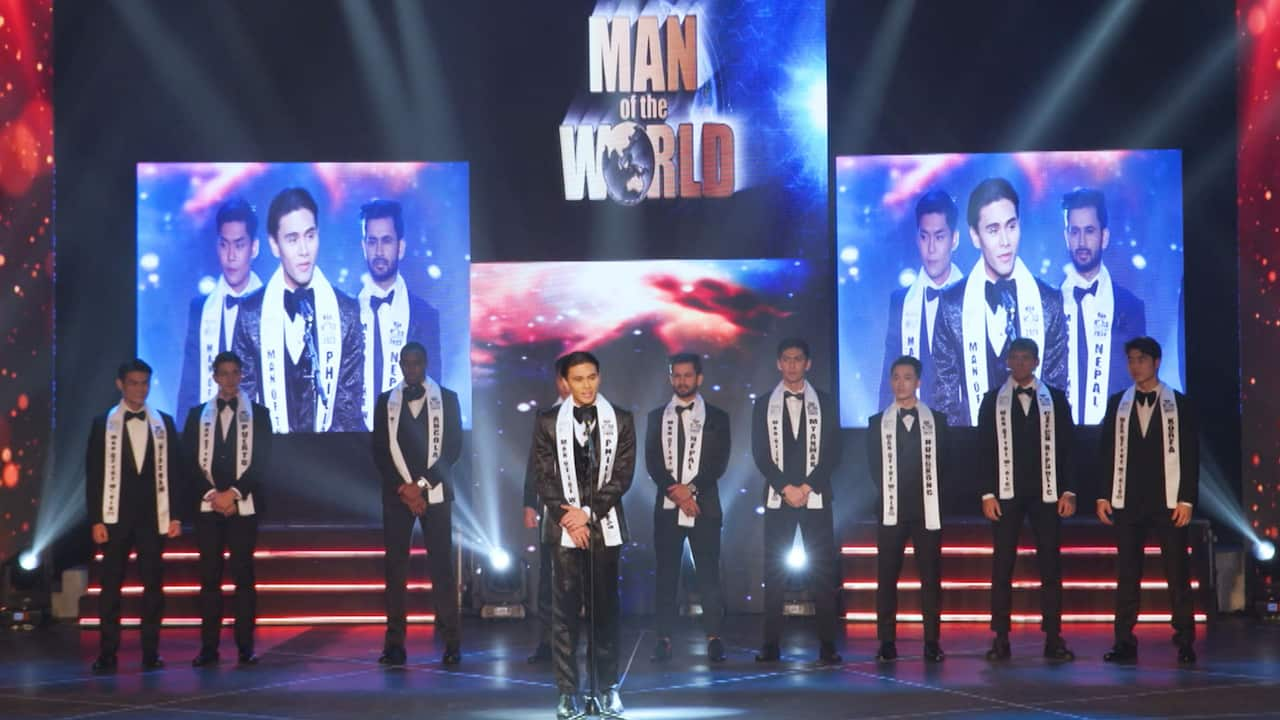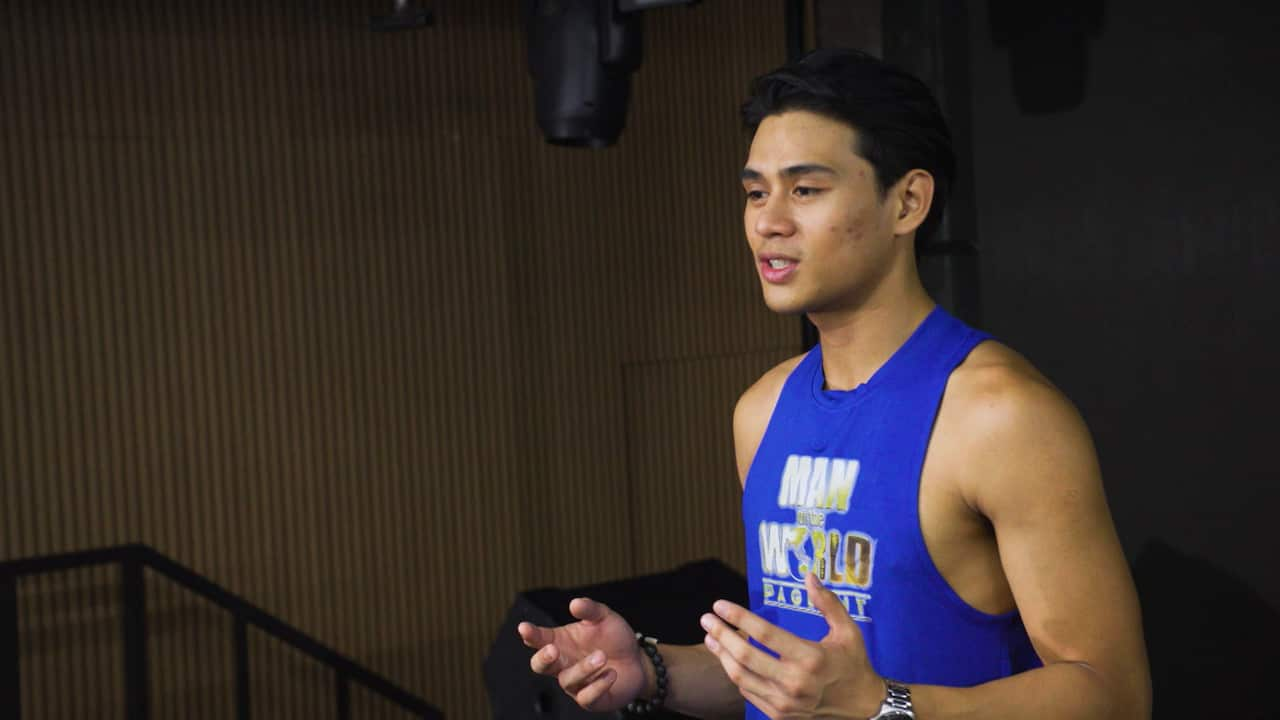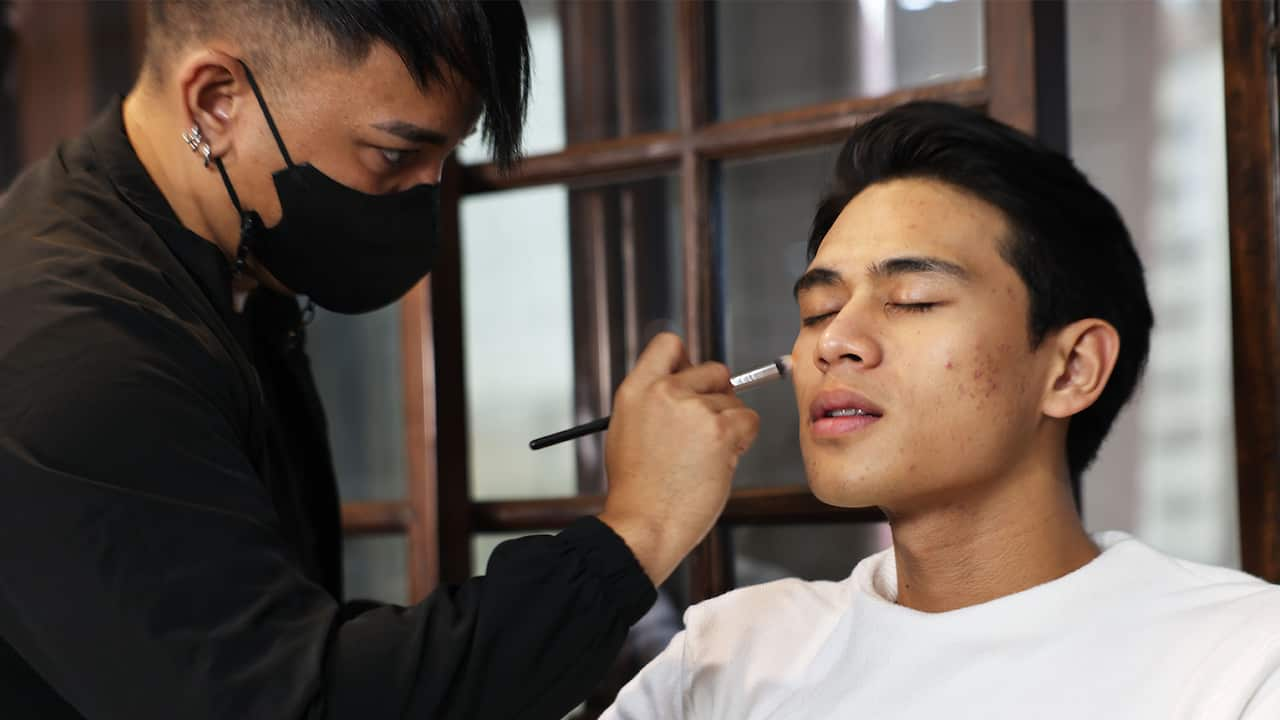It’s 4 o’clock on a June afternoon and beauty pageant hopeful James Reggie Vidal is famished. He was up until midnight last night at a pageant event and was in the gym by 5.30am today to stay “pageant fit”.
“[For] the past six months, I've been doing strength training and circuit training six days a week and also dieting," James tells SBS Dateline.
“The diet kills me so much. Hunger strikes, especially in the evening. Just to cope with it I scroll social media and watch movies.” It's not a method health professionals would advise.

When preparing for a pageant, James follows an intensive fitness routine and a strict diet. Credit: SBS Dateline
In a few hours, he’ll be one of 40 contestants from across Asia, Europe, Africa and North America strutting their stuff on stage in tight-fitting swimwear to be judged on their looks, physique, stagecraft, personality and body confidence.
For the winner, there are promises of fame and fortune, including thousands of dollars in prize money, sponsorships and modelling work.
Male beauty pageants in the Philippines
Beauty pageants for women and men are hugely popular in the Philippines despite controversies surrounding them such as allegations of sexual harassment, indecent proposals, and use of steroids. Contests run in schools and villages all the way up to the national and international levels and amass large fan bases.
“The pageants for men are slowly growing, but I can feel the gap with the women,” James says.
Man of the World is one of the major international male beauty pageants that has been held in the Philippines since 2017. It sells itself as being just as much about brains as about brawn. It combines swimwear, national costume and formal wear competitions with intelligence tests and an emphasis on advocacy.
Contestants are also assessed on personality and attitude when they’re not on stage, such as during team bonding events, charity day outings and even downtime at the hotel.

James speaks on stage during the coronation night of the Man of the World international pageant. Over the course of two weeks, 40 contestants from across Asia, Africa, and Europe have been whittled down to 10 finalists. Credit: SBS Dateline
“When I ask God, ‘Is this going to be worth it?’, I realise that moments like this come only once. And some people who dream of being a pageant king or being in a pageant don’t get the chance. So I'm so thankful and proud to be here today.”
It all culminates in a coronation night event when the 40 contestants are whittled down over a series of cut-throat on-stage challenges.
Body image issues
James entered his first contest when he was in high school. He finished second runner-up. That was where he was discovered by an agent.
To reach the Man of the World, James had to advance through the domestic pageant circuit.
But it hasn’t always been easy for him.
As a child, he used to be overweight, he says, and experienced bullying and body shaming because of his weight, which had a negative impact on his mental health.
“I got depressed because of the body shaming. A lot of people were teasing me and on social media, they’d be calling me different kinds of names, like ‘tambok’ (fat) and ‘tabachoy’ (chubby).”

As a child, James was bullied for being fat. He says he still hasn't gotten rid of those insecurities and is afraid to gain weight. Credit: SBS Dateline
“To be a man with beauty, you need to be lovable, understanding and respectful. To have great discipline, responsibility and to be a good leader,” he says.
Still, those scars remain today and play a role in his pageant regime.
“I'm afraid to be fat again,” he says. “It really affects me, in my psychology. It will never be gone.”
It's an experience felt all over the world, and the Butterfly Foundation says can be a risk factor in developing body dissatisfaction and for some, can increase the risk of developing eating disorders. They warn against behaviours where the main goal is reducing body weight or changing body shape.
The Butterfly Foundation's Danni Rowland told SBS Dateline, "It’s important that young men are offered the opportunity to challenge the unhelpful body ideals that exist around male bodies and that who they are is not defined by the way they look; their height, weight, leanness or muscularity does not determine their worth or how successful they will be in life."
Unrealistic standards and colonial notions of beauty
Throughout his journey, James also had to confront what he calls a bias towards colonial notions of beauty in the Philippines.
He says organisers of various pageants set standards on contenders’ physical appearance, which are often unattainable for Filipinos, such as being tall, having fair skin and a straight nose. Negative comments on social media add to the problem.
“Last year when I was in the Mister Pilipinas pageant, somebody said I was so black. Because in the Philippines, ‘moreno’ is a thing,” says James, using a local word referring to a Filipino with a dark complexion.

Since he entered beauty pageantry, James has received negative comments on social media about the dark tone of his skin and 'a Filipino nose.' Credit: SBS Dateline
James says he’s also been criticised for having a typical Filipino nose and says the preference is for a more pointed European nose with a high bridge.
Across the Philippines, the cosmetic surgery industry is booming. And it’s not just nose shapes that are changed. The so-called ‘Asian eyelid surgery’, known as blepharoplasty, is also common. It creates or enhances an upper eyelid to make the eyes look larger and more European.
I ask James if there’s an inherent contradiction between the lessons from his childhood – that true beauty is on the inside – and the reality of his adult life as a swimwear-clad model.
“I think there's no contradiction. Again, beauty and brains, so it must be 50/50," he says. "It doesn't work if you have this beauty, like 90 per cent, and you only got 10 per cent brains. You have a chance to win, but it's hard, so it must be equal.”
Readers seeking support for body image concerns can contact Butterfly Foundation on 1800 33 4673. More information is available at













